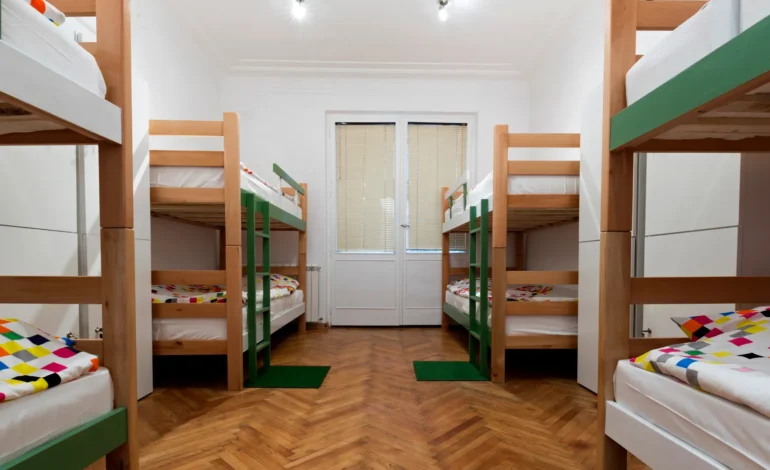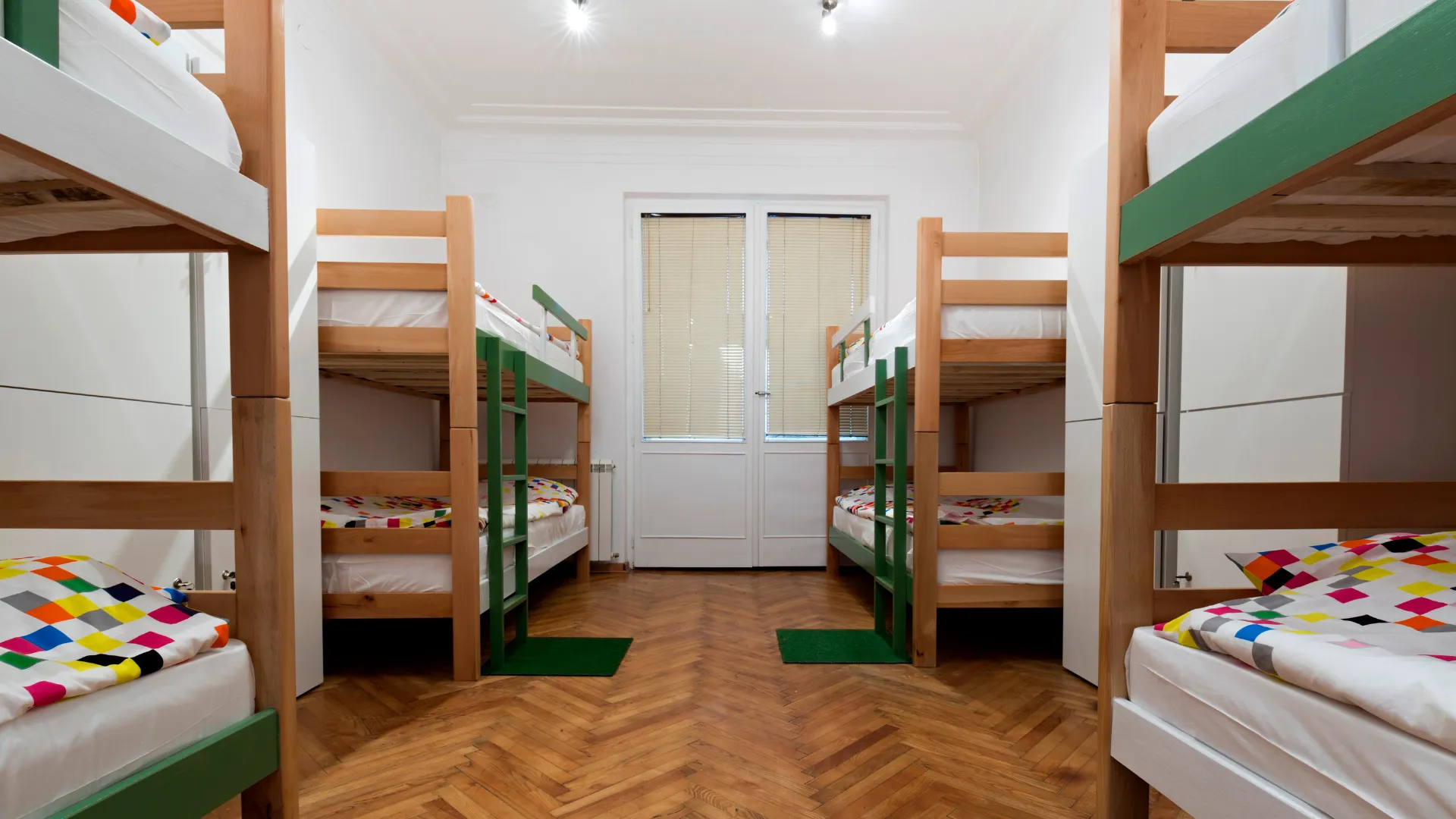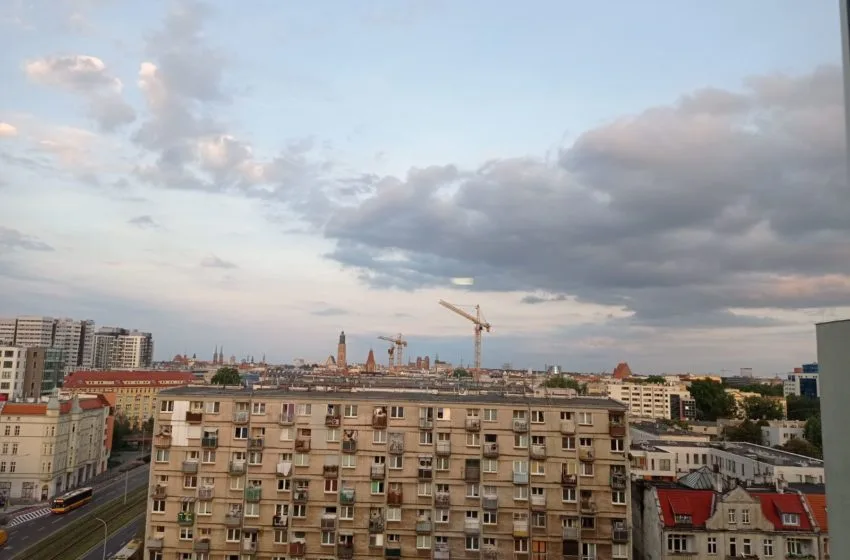Settling In: Housing Options for Foreign Workers in Poland

Poland, a nation experiencing robust economic growth, increasingly relies on foreign workers to fill critical labor shortages. However, this influx of international talent faces a significant, often overlooked hurdle: adequate and affordable housing. The current housing market in Poland presents a complex and often challenging landscape for foreign workers, marked by affordability issues, discriminatory practices, and a lack of regulatory oversight. This article delves into the pressing housing concerns confronting foreign workers in Poland, examining the various housing options available, their inherent limitations, and the urgent need for comprehensive policy reforms to ensure fair and dignified living conditions.
Affordable Housing Shortage: A Barrier to Polish Growth?
Poland’s economic success story is increasingly threatened by a stark reality: a severe shortage of affordable housing. While wages may be competitive in certain sectors, the cost of living, particularly in major urban centers like Warsaw, Krakow, and Wroclaw, is rapidly escalating. This disproportionately affects foreign workers, many of whom are employed in lower-paying jobs and struggle to secure suitable accommodation without allocating a significant portion of their income. The lack of affordable options not only diminishes their quality of life but also hinders Poland’s ability to attract and retain the skilled workforce necessary for sustained economic growth.
The housing shortage is exacerbated by a number of factors, including limited investment in social housing, bureaucratic barriers to new construction, and a speculative real estate market. Developers prioritize high-end apartments catering to affluent Poles and foreign investors, leaving a dearth of affordable units for those with modest incomes. This imbalance creates a highly competitive rental market, driving up prices and making it increasingly difficult for foreign workers to find suitable and reasonably priced accommodation. The consequence? A demoralized and financially strained workforce, ultimately undermining productivity and stifling economic potential.
Without addressing the systemic issue of affordable housing, Poland risks jeopardizing its long-term economic prospects. The current situation creates a two-tiered system where native-born Poles enjoy greater housing security, while foreign workers are relegated to substandard or overpriced accommodation. This fuels resentment, hinders integration, and ultimately undermines the social cohesion necessary for a thriving society. Investing in social housing, streamlining construction permits, and implementing regulations to curb speculative practices are crucial steps towards ensuring a more equitable and sustainable housing market that benefits all residents, including the invaluable foreign workforce contributing to Poland’s economic success.
Landlords’ Exploitation: Foreign Workers Face Housing Scams
The vulnerabilities of foreign workers seeking accommodation in Poland create fertile ground for exploitation by unscrupulous landlords. Language barriers, unfamiliarity with local regulations, and the pressure to secure housing quickly often make them easy targets for various scams and unethical practices. These can range from demanding exorbitant deposits and advance rent payments to imposing hidden fees and refusing to return security deposits upon lease termination, leaving foreign workers financially vulnerable and emotionally distressed.
One common tactic involves landlords exploiting the legal ignorance of foreign tenants. Unfair contract terms, such as clauses allowing for frequent rent increases or imposing unreasonable restrictions on guests, are often included in agreements that are difficult for non-native speakers to understand. Furthermore, some landlords neglect their responsibilities to maintain the property, leaving tenants to live in substandard conditions with inadequate heating, faulty plumbing, or other essential services. When tenants attempt to assert their rights, they often face intimidation or threats of eviction.
The lack of effective legal recourse for foreign workers who have been victimized by exploitative landlords further compounds the problem. Navigating the Polish legal system can be daunting, particularly for those who are not fluent in the language or familiar with the procedures. Furthermore, the cost of legal representation can be prohibitive, deterring many from pursuing their claims. The government’s failure to provide adequate legal aid and support services specifically tailored to the needs of foreign workers leaves them vulnerable to exploitation and perpetuates a culture of impunity among unscrupulous landlords.
Government Neglect: Is Poland Ignoring Migrant Housing Needs?
The Polish government’s apparent inaction regarding the housing crisis faced by foreign workers suggests a troubling disregard for their well-being and a failure to recognize their crucial contribution to the national economy. While Poland actively promotes its economic opportunities to attract foreign talent, it has demonstrably failed to address the fundamental need for affordable and dignified housing. This neglect sends a discouraging message to potential migrants and undermines Poland’s reputation as a welcoming and inclusive society.
The absence of specific policies and programs designed to address the housing needs of foreign workers is particularly concerning. Existing social housing initiatives are often inadequate to meet the demand from the general population, let alone cater to the unique challenges faced by migrant communities. Furthermore, there is a lack of targeted support services, such as language assistance, information on tenants’ rights, and access to legal aid, which could empower foreign workers to navigate the housing market more effectively and protect themselves from exploitation.
This government inaction is not only ethically questionable but also economically short-sighted. By failing to ensure adequate housing for foreign workers, Poland risks losing its competitive edge in attracting and retaining the skilled labor it needs to sustain economic growth. A demoralized and exploited workforce is less productive and less likely to remain in Poland long-term, leading to increased turnover and a loss of valuable human capital. A proactive approach to addressing the housing needs of foreign workers is not just a matter of social justice; it is a crucial investment in Poland’s future prosperity.
Company Housing: A Solution or New Form of Dependence?
Company-provided housing, often touted as a solution to the housing woes of foreign workers in Poland, presents a complex and potentially problematic alternative. While it can alleviate the immediate burden of finding accommodation, it can also create a new form of dependence, limiting workers’ autonomy and potentially exposing them to exploitation by their employers. The inherent power imbalance between employer and employee can lead to abuses, particularly when the housing is tied directly to employment.
The potential for exploitation arises from the fact that workers living in company-provided housing are often vulnerable to unfair treatment and arbitrary decisions. Employers may exert undue influence over their personal lives, monitor their activities, and threaten eviction as a means of control. Furthermore, the quality of company housing can vary significantly, with some employers providing decent living conditions while others offer cramped, poorly maintained, or even unsafe accommodation. Workers who complain about these conditions may fear retaliation, including job loss and homelessness.
While company housing can provide a temporary solution for some foreign workers, it should not be seen as a long-term or sustainable alternative to addressing the broader housing crisis in Poland. Genuine solutions require comprehensive policy reforms that ensure access to affordable and dignified housing for all residents, regardless of their nationality or employment status. Over-reliance on company housing can perpetuate a cycle of dependence and exploitation, undermining the principles of fair labor practices and social justice.
Shared Accommodation: Dignified Living or Exploitative Packets?
Shared accommodation, often the most readily available and purportedly affordable option for foreign workers in Poland, frequently falls short of providing dignified living conditions. While sharing apartments can be a practical solution for some, the reality often involves overcrowded and poorly maintained spaces where privacy is limited and basic amenities are stretched to their breaking point. The lack of regulation and oversight in this sector allows landlords to exploit vulnerable tenants by packing multiple individuals into small apartments, charging exorbitant rents per person, and neglecting their responsibility to maintain the property.
The pressure to minimize living expenses often forces foreign workers to accept substandard shared accommodation, sacrificing comfort and well-being for affordability. Overcrowding can lead to sanitation problems, increased risk of illness, and heightened tensions among roommates. Conflicts over shared resources, such as bathrooms and kitchens, are common. Furthermore, the lack of privacy can create stressful and isolating living environments, hindering integration and negatively impacting mental health.
The government’s failure to regulate the shared accommodation market effectively perpetuates these exploitative practices. Without clear standards for occupancy limits, minimum space requirements, and property maintenance, landlords are free to prioritize profit over the well-being of their tenants. Stricter regulations, coupled with proactive enforcement and targeted support services for foreign workers, are essential to ensure that shared accommodation provides a safe, affordable, and dignified living environment, rather than an exploitative packet of misery.
Policy Reforms Needed: Leveling the Housing Playing Field NOW!
The urgent need for comprehensive policy reforms to level the housing playing field for foreign workers in Poland cannot be overstated. Piecemeal solutions and short-term fixes will not suffice; a multifaceted approach is required to address the systemic issues that perpetuate housing insecurity and exploitation. These reforms must include increased investment in social housing, stricter regulations on the rental market, and targeted support services for foreign workers.
Firstly, the government must prioritize the construction of affordable housing units, particularly in major urban centers where the demand is greatest. This requires streamlining construction permits, incentivizing developers to build affordable units, and increasing public funding for social housing projects. Secondly, stronger regulations are needed to protect tenants’ rights and prevent landlords from engaging in exploitative practices. This includes setting clear standards for occupancy limits, minimum space requirements, and property maintenance, as well as establishing effective mechanisms for resolving disputes and enforcing tenant protections.
Finally, targeted support services are essential to empower foreign workers to navigate the housing market effectively and protect themselves from exploitation. This includes providing language assistance, information on tenants’ rights, access to legal aid, and support in finding suitable and affordable accommodation. By implementing these comprehensive policy reforms, Poland can create a more equitable and sustainable housing market that benefits all residents, including the invaluable foreign workforce that contributes to its economic success. Failure to act will perpetuate a system of inequality and exploitation, undermining Poland’s reputation as a welcoming and inclusive society.
The housing crisis facing foreign workers in Poland demands immediate and decisive action. The current situation is not only ethically unacceptable but also economically detrimental, hindering Poland’s ability to attract and retain the skilled labor it needs to thrive. By prioritizing investment in affordable housing, strengthening tenant protections, and providing targeted support services, the Polish government can create a more just and equitable society where all residents have access to safe, affordable, and dignified housing. The time for complacency is over; bold policy reforms are needed now to level the housing playing field and ensure a brighter future for foreign workers in Poland.











